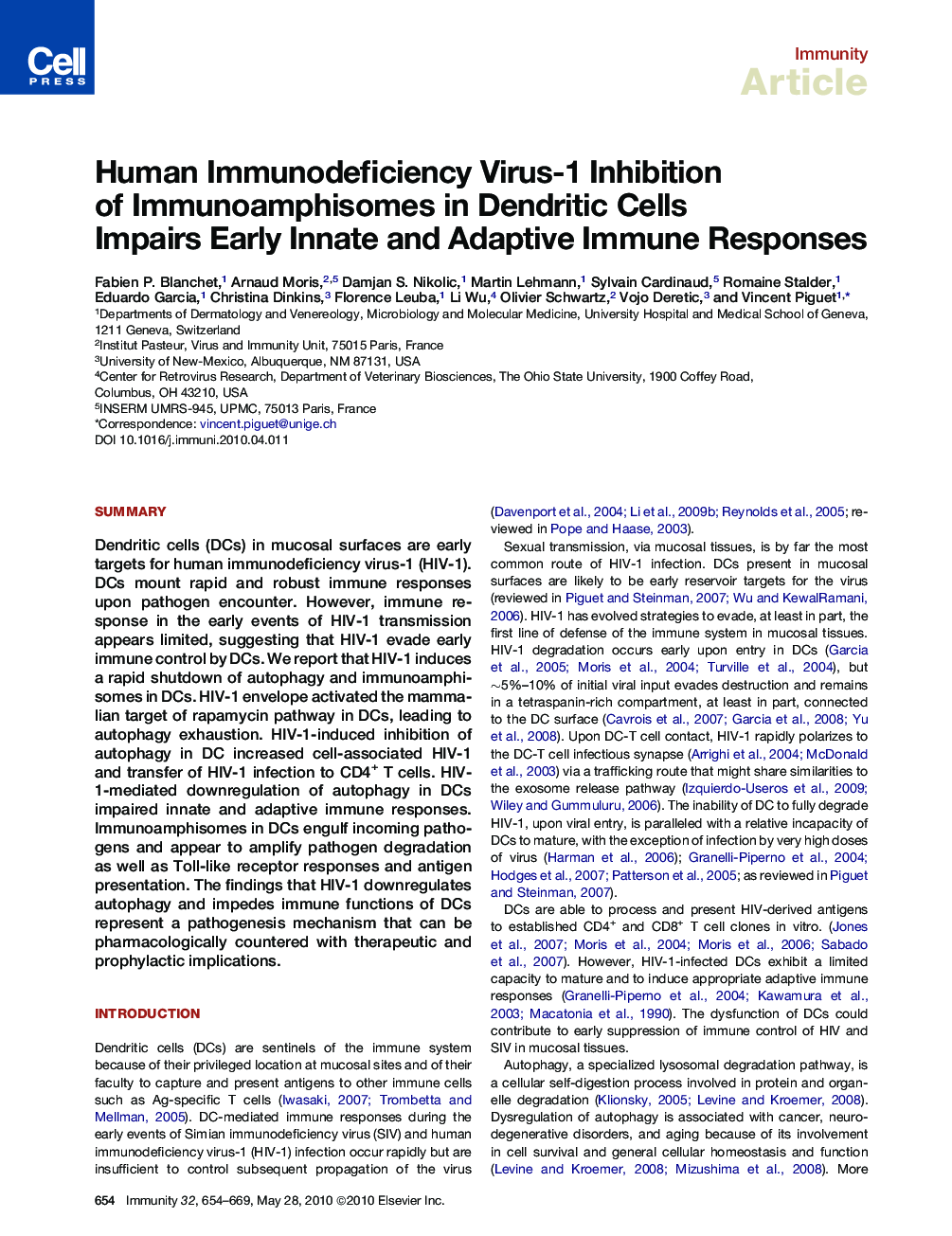| Article ID | Journal | Published Year | Pages | File Type |
|---|---|---|---|---|
| 3353623 | Immunity | 2010 | 16 Pages |
SummaryDendritic cells (DCs) in mucosal surfaces are early targets for human immunodeficiency virus-1 (HIV-1). DCs mount rapid and robust immune responses upon pathogen encounter. However, immune response in the early events of HIV-1 transmission appears limited, suggesting that HIV-1 evade early immune control by DCs. We report that HIV-1 induces a rapid shutdown of autophagy and immunoamphisomes in DCs. HIV-1 envelope activated the mammalian target of rapamycin pathway in DCs, leading to autophagy exhaustion. HIV-1-induced inhibition of autophagy in DC increased cell-associated HIV-1 and transfer of HIV-1 infection to CD4+ T cells. HIV-1-mediated downregulation of autophagy in DCs impaired innate and adaptive immune responses. Immunoamphisomes in DCs engulf incoming pathogens and appear to amplify pathogen degradation as well as Toll-like receptor responses and antigen presentation. The findings that HIV-1 downregulates autophagy and impedes immune functions of DCs represent a pathogenesis mechanism that can be pharmacologically countered with therapeutic and prophylactic implications.
Graphical AbstractFigure optionsDownload full-size imageDownload high-quality image (153 K)Download as PowerPoint slideHighlights► HIV-1 activates mTOR pathway and induces a rapid shutdown of autophagy in DCs ► LC3+ amphisomes can target incoming virions to lysosomal compartments ► Impaired DC-autophagy leads to increased viral content and transfer to CD4+ T cells ► HIV-1-mediated autophagy inhibition alters DC innate and adaptive immune responses
